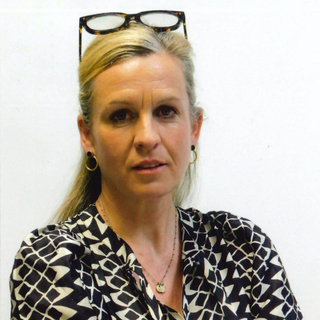
Miniature of Saint Yared, patron saint of music,18th-century illuminated mss. (Princeton University Art Museum)
All are invited to a lunch talk with ISM fellow, Dr. Janie Cole at the Elm City Club. Lunch will be provided. RSVP to Raymond.vogel@yale.edu. Note: Seating capacity is limited and will be given on a first-come, first-served basis.
The Jesuit mission to the Christian kingdom of Ethiopia (1557-1632) was one of its earliest and arguably most challenging projects in the early modern period. New ambitious architectural projects were undertaken as symbols of religious renewal and state supremacy, and music was also central to Jesuit conversion practices. Drawing on 16th- and 17th-century travelers’ accounts, new Jesuit archival documentation and indigenous sources, this talk explores the role of music and ritual sounds in relation to the sacred spaces of new churches erected on the Ethiopian highlands and examines the musical art of conversion developed by European Jesuit missionaries hailing from Portuguese India placed in the wider context of a vibrant indigenous royal Ethiopian court culture, local material economies of patronage that shaped these cultural dynamics, and the influences of foreign designs on both music and architecture. It centers on several key Jesuit architectural sites on the highlands as case studies, namely Gorgora Iyäsus, Dänqäz (the royal capital), Qwälläla and Gännätä Iyäsus, to examine the structure and decorations of these buildings in relation to the soundscape of Jesuit Catholic service, multisensorial ceremonies with indigenous Ethiopian and Indian components at the intersections of sacred space, sound and rite. First, opening a new avenue for Jesuit architectural history by considering Renaissance church acoustics and wider conceptual ideas about so-called ‘aural architectures’, it reconstructs the soundscapes of these buildings that included Jesuit services, liturgical practices, polyphony, prayers, recitations, chants, psalms and masses to consider how music interacted with the senses in a combination of both European and Ethiopian thought and practice. Second, by situating the Ethiopian endeavor as part of a Jesuit global mission, it considers foreign influences in sound and space as architects, artists and musicians came from Mughal and Portuguese India and Catholic Europe to produce these highly original sacred spaces combined with indigenous African sounds. Lastly, it explores the possibility of creating a 3D acoustical model of an Ethiopian sacred space to study the perceptual and cognitive effects of its acoustical characteristics in relation to musical rite in an effort to understand the underlying principles in which musical and ritual sounds modulated by the architectural spaces in which they are created, transmitted and perceived, elicit powerful aesthetic and spiritual responses. By combining sonic and visual practices, these Afro-Eurasian entanglements offer significant broader insights into the workings of an intertwined early modern Indian Ocean World, sacred musical migrations and transmissions, African agency in foreign relations, interconnected global music histories across three continents, and the role of embodied aurality and architecture in constructing identity and religious proselytism in the Horn of Africa.

Dr. Janie Cole (PhD, University of London)
Dr. Janie Cole (PhD, University of London) is a research scholar at Yale University’s Institute of Sacred Music, a visiting professor in Yale’s Department of Music, and an affiliate of the Yale Council on African Studies. She is also a research officer for East Africa for the University of the Witwatersrand and University of Cape Town’s interdisciplinary project Re-Centring AfroAsia (2018-), and a research associate at Stanford University’s Center for Computer Research in Music and Acoustics (2022-). Prior to this, she was a senior lecturer (adjunct) at the University of Cape Town’s South African College of Music for nine years (2015-23). Her research focuses on musical practices, instruments and thought in early modern African kingdoms and Afro‐Eurasian encounters; transcultural circulation and entanglements in the age of exploration; the intersection of music, consumption and production, politics, patronage and gender in late Renaissance and early Baroque Italy and France; and music and the anti‐apartheid struggle in 20th-century South Africa and musical constructions of Blackness, apartheid struggle movement politics, violence, resistance, trauma, and social change. Her current work centers on early modern musical culture at the royal court in the Christian kingdom of Ethiopia and intertwined sonic histories of entanglement with the Latin Mediterranean and the Indian Ocean world. She is the author of two books, as well as numerous articles in peer‐reviewed journals and book chapters. Fellowships include The Harvard University Center for Italian Renaissance Studies and the Claude V. Palisca Award in Musicology from the Renaissance Society of America.
She is currently the founding discipline representative in Africana Studies (2018-‐23) at the Renaissance Society of America, on the Editorial Advisory Board of Renaissance Quarterly, co-founder of the International Musicological Society Study Group Early African Sound Worlds, and the founder/executive director of Music Beyond Borders.
